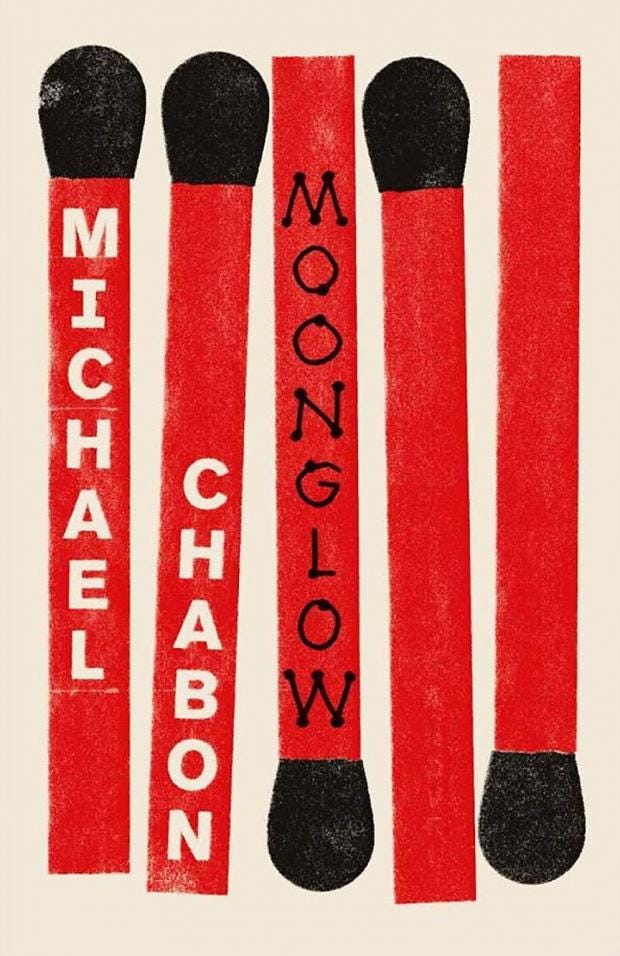
A novel, a memoir, or simply a “pack of lies”? Described as each in turn, Michael Chabon’s new book Moonglow vacillates between multiple guises, playfully teasing the reader at every turn.
In it, a young writer who goes by the name Mike Chabon (a subtle but necessary distinction), is privy to the deathbed confessions of his grandfather. In the final stages of painful bone cancer, the old man’s tongue is loosened by high doses of painkillers. “Explain everything,” he tells his grandson. “Make it mean something. Use a lot of those fancy metaphors of yours. Put the whole thing in proper chronological order, not this mishmash I’m making you.”
Chabon definitely makes it mean something – a tender love story between two damaged people – what he doesn’t do, however, is set it forth in chronological order. For, whatever this book is, it’s also a reflection on memory, and memory doesn’t work like that. By default it’s self-selecting; not objective reportage, but instead the creation of a narrative, one in which beginnings, middles and ends chase each other’s tails.
Chabon’s grandfather is an engineer from Philadelphia. As a soldier during the Second World War he witnesses the liberation of Mittelbau-Dora, the concentration camp at Nordhausen where inmates were forced to work on the V-2 rocket. He’s haunted by what he’s seen, and by the figure of Wernher von Braun, the aerospace engineer who invented the missile for Nazi Germany and thereafter the Saturn V rocket for Nasa in the US. Space both compels and repels him – knowing what he does about von Braun, he has to leave the room when his family is gathered round the TV eagerly watching the moonlandings, but later in life he builds scale models of crafts and vehicles for Nasa.
Grappling with her own demons is Mike’s grandmother whom Mike’s grandfather meets in Baltimore in 1947, a French Jewish refugee with an infant daughter (Mike’s mother) in tow. The horrors of her war experience manifest in the frightening figure of a Skinless Horse, and soon a full-blown psychosis sends her over the edge and into a state hospital.
With the action moving episodically between Germany during the war, Florida in the late Eighties (where Mike’s grandfather is living in a retirement complex prior to falling sick), Baltimore in the Forties and Fifties, and a New York prison (Mike’s grandfather does time after attempting to kill his boss), the book’s structure ably mimics the labyrinths of a drug-addled mind.
That said, Chabon never loses control of his material, or his plot; the liberties he takes when it comes to “the truth” – whatever that is – allowing him to create a narrative that unspools in a seemingly organic way. “In preparing this memoir,” he explains in the author’s note that precedes the work, “I have stuck to facts except when facts refused to conform with memory, narrative purpose, or the truth as I prefer to understand it.” Whether fact or fiction, it’s undeniably a masterclass in storytelling.
No comments:
Post a Comment